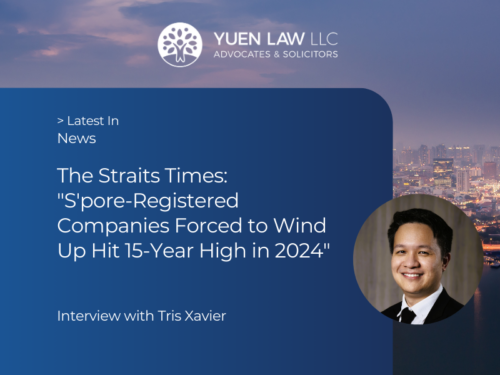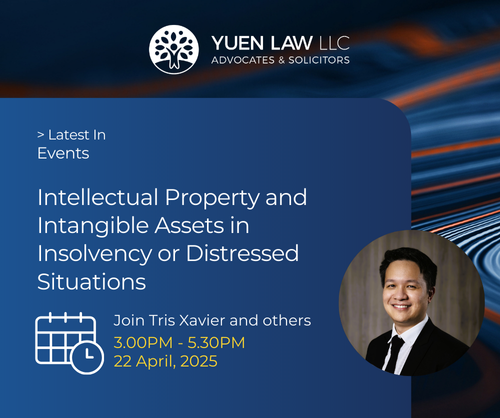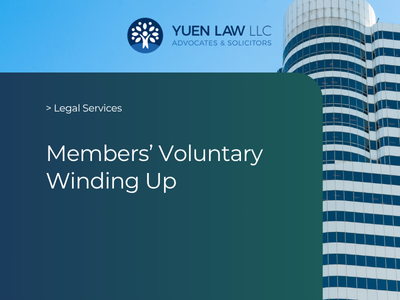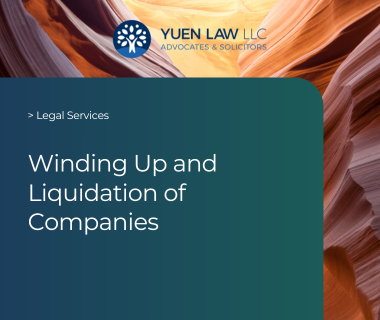
Singapore High Court determines that obligation to repay cryptocurrency counts as debts for determining the insolvency of a company under the Insolvency, Restructuring and Dissolution Act (IRDA) 2018
Hodlnaut Pte Ltd (in Liquidation)
In the High Court decision of Loh Cheng Lee Aaron & Another v Hodlnaut Pte Ltd (Zhu Juntao And Others, Non Parties) [2023] SGHC 323, the High Court had occasion to consider whether an obligation to pay cryptocurrency debts to its creditors was a debt under section 125 of the Insolvency, Restructuring and Dissolution Act 2018 (IRDA), such that the inability to repay such debts could form the basis for the winding up of a company.
Background of the Hodlnaut Case
Hodlnaut was a Singapore-based cryptocurrency trading platform which collapsed when the TerraUSD (also known as UST) lost its peg to the US Dollar. The loss of the peg resulted in Hodlnaut’s holdings dropping by almost 70% overnight, and the collapse of the platform. It was placed into interim judicial management in August 2022. Around the same time as Hodlnaut was placed into judicial management, withdrawals were frozen.
The directors of the Company in question had sought to block the interim judicial managers’ application to wind up the company, arguing fundamentally that cryptocurrency debts owed to various creditors ought not be considered debts under section 125 of the IRDA. The directors relied on the prior unreported decision on Algorand Foundation Ltd v Three Arrows Capital Pte Ltd (HC/CWU 246/2022), wherein the General Division of the High Court held that a debt in cryptocurrency did not constitute a debt for money, and as such dismissed the winding up application in that case. The directors also relied on a number of provisions in the IRDA and other statutes (set out at paragraph [9] of the Grounds of Decision) to argue that the IRDA only contemplated debt in fiat currency.
The Court’s Decision and Analysis in Ordering the Hodlnaut Winding Up
Cryptocurrency Obligations do Count In Determining Whether the Company is Insolvent
In the present decision, the Court held that the test for cash flow insolvency (as set out in the seminal Court of Appeal decision of Sun Electric Power Pte Ltd v RCMA Asia Pte Ltd (formerly known as Tong Teik Pte Ltd) [2021] 2 SLR 478) under section 125(1)(e) of the IRDA was a broad one, and that the Court ought to look at the “holistic position of the company”, including not just monetary and liquidated claims but also claims on the “non-monetary assets of the company, though which may ultimately be payable in money”. To this end, the Court rejected the directors’ argument that a debt had to be in fiat or money before it could constitute a debt under the IRDA for the purposes of a winding up petition, observing that debts did not arise only when the assets were quantified in monetary terms, but rather that the Court could assess the assets during a winding up petition and accept or reject the applicant’s valuation of the same.
The Court then distinguished Algorand on the ground that in Algorand, the petition had been commenced under section 125(2)(a) (which specifically provides for commencement of a winding up on the basis of a written demand for $15,000), and that claiming the same in cryptocurrency failed the requirement for the same to be a “money sum”, whereas in the present case the application was made under section 125(2)(c) (which relies on cash flow insolvency).
Imposition Of Withdrawal Limits
The Court also disagreed with the directors’ argument that the halt on withdrawals of cryptocurrency meant that no liability was owed. The Court noted that the halt on withdrawal simply meant that the asset could not be withdrawn, and not that the base liability was extinguished.
Concluding Observations
The decision gives some clarity moving forward not just with dealing with cryptocurrency-related insolvencies, but also winding up petitions in general – specifically, applicants for winding up should be cautious on the section they are bringing the winding up under (as was the case under Algorand v Three Arrows Capital Pte Ltd), and note the breadth of the debts which can constitute a debt for the purposes of section 125 of the IRDA.
The decision also clarifies that creditors can commence insolvency proceedings under Section 125(2)(c), without first obtaining a judgement for liquidated damages before an assessment is made of cash flow insolvency. Creditors can demonstrate that the company is unable pay its debts, including those in cryptocurrencies, as they fall due.
Solicitors acting for entities which hold monies or assets on behalf of clients may also wish to consider the Judge’s note to consider drafting clauses that “effectively bar anyone holding an account subject to a withdrawal halt from pursuing a winding up of a company.”
Note: Creditors can find updates to Hodlnaut liquidation matters here.
If you would like information and/or assistance on insolvency matters, you may contact:
Tris Xavier
Associate Director – Insolvency and Restructuring
T: +65 6536 6037
E: tris@yuenlaw.com.sg
Click here to view Tris’s CV.




